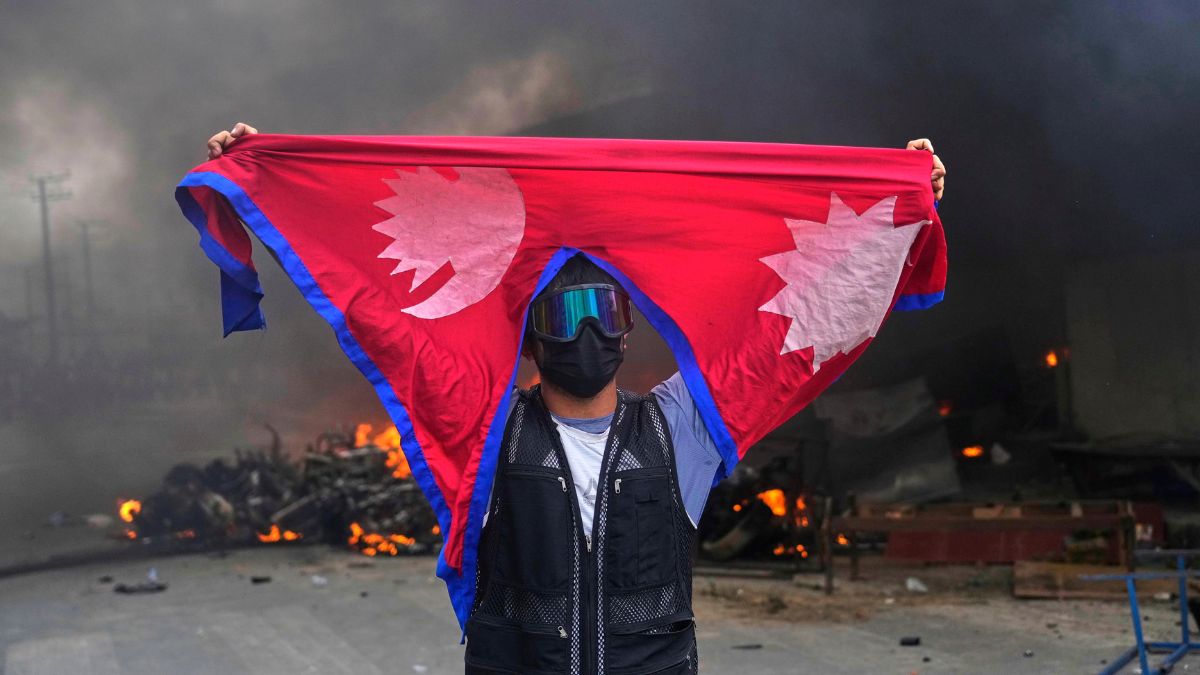After KP Sharma Oli’s resignation, all eyes are on who would be the next Prime Minister of Nepal. While Pushpa Kamal Dahal ‘Prachanda’ and Sher Bahadur Deuba are the most senior leaders, protesters have attacked both of them, suggesting they may not have an easy claim to prime ministership.
After KP Sharma Oli’s resignation, all eyes are on who would be the next Prime Minister of Nepal.
A day after the police crackdown killed at least 19 protesters and injured over 400, Oli resigned as protests intensified in Kathmandu and elsewhere in the country. Protesters stormed and set fire to the parliament, the Singha Durbar (the seat of the government), the Supreme Court, and the private homes of Oli, former PM Sher Bahadur Deuba, and former PM Pushpa Kamal Dahal ‘Prachanda’, among other politicians.
Deuba and his wife, foreign minister Arzu Rana Deuba, were also assaulted. The visuals have been doing rounds on the internet since morning.
As these are some of the biggest Nepali politicians who have long rotated prime ministership among them, there are questions whether the public that has turned against them would accept them as the leader again.
Here are four leaders in a position to stake claim to be Nepal’s next leader.
Sher Bahadur Deuba
In normal circumstances, Deuba would have the strongest claim to prime ministership as the head of the largest party in the parliament.
In the 275-member House of Representatives, Deuba’s Nepali Congress has 88 seats. It is currently a coalition partner of Oli. But Deuba has been under pressure from his own senior leaders to quit the coalition in the wake of killing of protesters.
Moreover, protesters have attacked Deuba and his wife, foreign minister Arzu, and vandalised their house. Such a treatment does not inspire confidence that they would accept him as their next leader.
However, between pro-monarchy right-wing parties and communist parties of Oli and Prachanda, Deuba could emerge as a moderate candidate who could have a shot at building some sort of consensus. As the leader of the largest party, he also has the best chance at reaching the majority mark in a coalition.
Pushpa Kamal Dahal ‘Prachanda’
Prachanda is the leader of the Communist Party of Nepal-Maoist Centre (CPN-MC). He is the former rebel leader who waged a civil war against the erstwhile monarchy of the country.
Prachanda is a former coalition partner of Oli. After their fallout, Oli joined hands with the NC to form the government. In ongoing protests, Oli’s personal house has also been attacked.
In the House, Oli’s CPN-MC just has 32 seats, so it could be difficult for him to muster enough numbers without the support of Oli’s Communist Party of Nepal (Unified Marxist-Leninist) or NC.
Shekhar Koirala
Shekhar Koirala is a senior leader of NC, who belongs to the famous Koirala family of Nepal. Several people from his family have served as ministers and prime ministers for several decades.
Koirala has a following in the NC and is seen at times as a rival within the party to Deuba.
During the ongoing crisis, Koirala has reportedly pushed for NC to walk out of the coalition with Oli.
Balen Shah
The wild card-holder in the contest is Kathmandu Mayor Balen Shah, who has emerged as a popular younger face in recent years.
While Deuba, Prachanda, and Koirala, are all in their 70s, Shah is just 35, and has been seen by many as someone who could challenge the status quo.
As ongoing protests are being seen as an expression of years of frustrations of the public at their leaders’ failures, Shah has been hailed as a changemaker.
Nepal has long had political instability where weak governments have ruled the country since the abolition of the monarchy in 2008. No government has completed its five-year term as coalitions often fail to hold and infighting leads to the collapse of the government. The public perception that the corruption is rampant has increased over the years. In such circumstances, many have hailed Shah as someone who could disrupt the established system and bring a change.
End of Article

)
